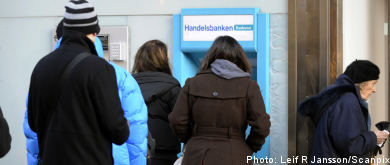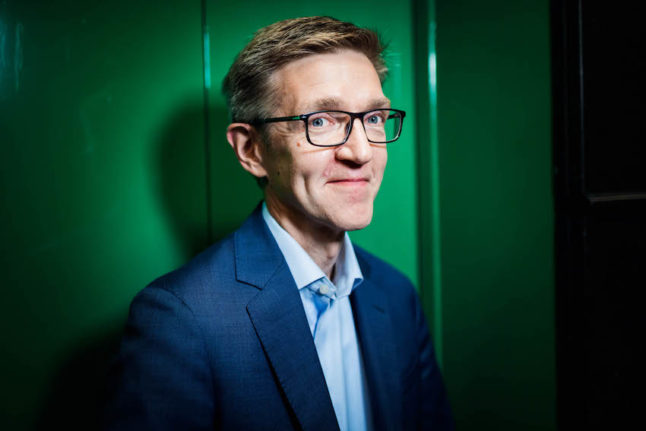Speaking on Wednesday at a conference for Sweden’s Financial Sector Union (Finansförbund), Riksbank Deputy Governor Lars Nyberg explained that the transaction costs associated with various methods of payment remain hidden from Swedish consumers.
“At present it is impossible for consumers to see the costs of cash and card payments. These charges are made in the form of higher prices on goods and services. It is consumers and bank customers who ultimately pay the costs of all payments,” he said.
According to Nyberg, the Swedish economy would benefit from clearer price signals when it comes to the real costs of paying with cash or card.
He presented Riksbank research with found that, while card payments are becoming more prevalent in the Swedish economy, consumers in Sweden still use much more cash in comparison to other Nordic countries.
In addition, the study revealed that on average, card payments are 35 percent less costly for society than cash payments, when looking at data from 2002.
“We as consumers probably use more cash and fewer card payments than we would do if we realized what cash management costs – and if we had to pay for it,” said Nyberg.
Nevertheless, Nyberg stopped short of calling for cashless economy.
He explained that, while the costs of card transactions remain fixed regardless of the size of the purchase, the costs associated with using cash are variable.
“For payments of small amounts the cost of cash is therefore lower than the cost of a card payment. This means that from society’s point of view, cash may be preferable for making small payments,” said Nyberg.
According to Riksbank calculations, cash should be used for any transaction less than about 70 kronor ($11.70), whereas cards are the most efficient method of payment for larger purchases.
In addition to using surcharges on cash machine withdrawals as a way to steer consumers away from relying on cash, the Riksbank also suggests that retailers charge consumers who insist on using expensive credit cards.



 Please whitelist us to continue reading.
Please whitelist us to continue reading.